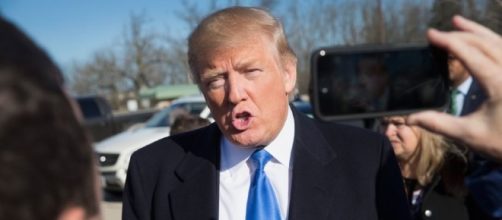Although many of the things Mr. Trump said in his speech accepting the Republican nomination for U.S. President were accurate, including that incomes have remained relatively stable or actually declined and that there are a large number of people who aren't counted as unemployed because they have just given up (or are working in the underground economy essentially making their own jobs, many other claims were wildly exaggerated or completely false.
This matters because his claim on the White House is based almost entirely on a promise to fix "everything" that is wrong and many of the things he cites as being wrong are simply not true.
It would certainly make it easier for the Republican nominee to keep campaign promises if the previous administration had already fixed them but whether he knows the problems don’t exist is not known. This analysis based only on published facts should help Europeans get a better grasp of American politics, a subject which, believe me, confuses many Americans also.
What Will Trump Fix?
Candidate Trump, for example, says that President Obama has been terrible for the U.S. economy. However, the stock market has climbed almost steadily since the Democrats took over the White House from President Bush until it is near historic highs. The Dow Jones Average was about 6,000 when Bush left office and is over 18,500 today.
In the last election cycle, Republicans said if elected they would bring unemployment down to 6% by 2017. It is now slightly under 6%.
Mr. Trump also says he will build a wall to stop illegal immigration. The fact is that the number of illegal residents in the U.S. peaked in 2007 under Republican President Bush and has been steadily declining ever since.
This according to findings by the Pew Research Organization. Although Republicans cite the high and growing Government deficit they never remind people that it got started by President Bush declaring two wars and failing to fund either one and that most economists agree that to pull the country and world out of what was near total collapse of the financial system deficit spending was the only solution which has ever worked.
Is the U.S. weak?
One of Mr. Trump's most consistent themes is that America is militarily weak and that he will fix it. But is it really? Has the world's only superpower suddenly fallen apart militarily? According to a study by Credit Suisse, China spends $216B dollars yearly and has about 9,100 tanks backed up by 2,800 aircraft. What does the "weak" U.S. have to counter that? The U.S. budget is about $600B (more than China, Russia, and NATO countries combined), only about 8,800 tanks, but nearly 14,000 aircraft.
Republicans say they will cut taxes and grow the economy that way. The marginal tax rates for the highest earners were more than three times higher during the Eisenhower administration, one of the most economically productive periods of U.S.
history where they were often over 90%. While it is true that real wages for Americans have stayed the same while expenses and inflation have increased, meaning that people are worse off every year, it is also a fact thatRepublicans oppose minimum wage increases.
The high crime scare.
How aboutthe high crime problem in the U.S.?The U.S. murder rate peakedunderNixon and has dropped almost steadily since then, reaching its lowest point during the Obama Administration. Statistically, the rate by population of violent crimes in the U.S. is about one-third today of what it was in 1990
The point of all this is that whether or not you believe Mr. Trump (who has told staff and his son told Ohio Gov. Kasich, that he wants his Vice President to be in charge of both foreign and domestic policies) can actually do any of the things he claims, in point of fact many of them were actually much worse under President Bush and President Obama's Administration has seen most of them vastly improved whether or not you believe the President can actually control things like the international economy.

